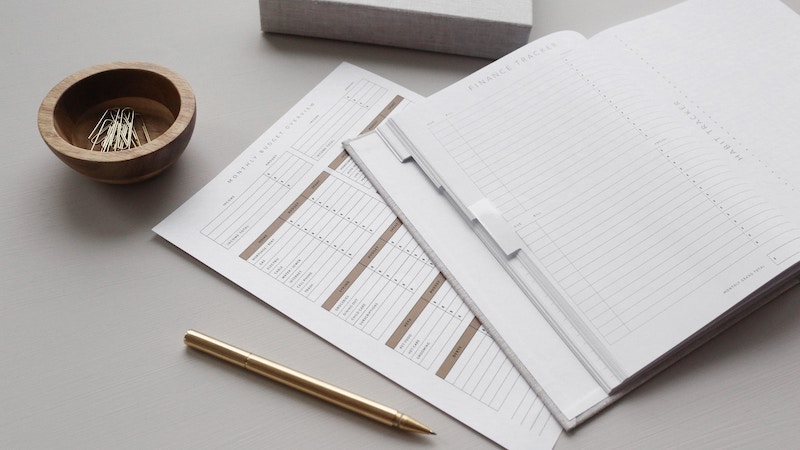Do you have a financial firewall between you and your business?
Whether you’re an entrepreneur who’s just starting up or a small business owner who’s been chugging along for a while, nothing is more important than separating your business and personal finances.
Why should Washington business owners be concerned about keeping these finances separate? Legal liability, ease of bookkeeping, and personal asset protection are just a few reasons to separate your personal cash from your business dealings.
Tax implications
Perhaps the most important reason to separate personal and business finances is for tax purposes. As a business owner, you’re allowed to deduct business-related expenses like travel and supplies. To claim these deductions, you must have proper supporting documentation.
If your business is audited by the IRS, they’ll look closely at every expense to verify it’s actually related to your business operation. Having a separate business account with a clear paper trail of expenses and how you paid for them will make this process so much simpler.
Avoid Audits on Your Personal Accounts!
Has your business been flagged for review? Separate accounts makes it less likely the IRS will audit both your business and your personal records.
Lending effects

A separate business account works to your advantage when it comes to lending and debt.
For example, obtaining larger business loans or establishing vendor lines of credit is nearly impossible without a seperate business account.
To apply for a loan, you’ll be required to submit both your personal and business tax returns for evaluation. If your finances are mingled, it will be an immediate red flag to a potential lender. The lender won’t be able to get a good read on your current cash flow, revenue, and other financial factors — all very important clues for determining your potential to pay back the loan.
Personal liability protection
If your personal and business finances are combined, there’s no way to differentiate between you, the business owner, and you, the citizen. This puts you at risk for being held personally liable.
For example, if a customer, vendor, or someone else were to bring a lawsuit against your company, you’d be personally exposed to damages.
Another example is failure to pay your debts. Has a creditor taken action against your company for unpaid debt? If your business is structured as a corporation or limited liability company and your finances are separate there will be a clear distinction between your business and personal finances. This helps you avoid being personally exposed to damages.
And if your business tanks and you’re facing bankruptcy, you risk opening up your personal finances to seizure. But if your finances are separate, your personal assets will be in the clear.
Ease of recordkeeping
In general, having to dig through your personal records to identify business purchases or payments can be time consuming and stressful. Keeping things separate is a great time-saving strategy and good for your sanity.
The ability to easily keep track of your business income cannot be understated. And if you’re working with a bookkeeper or accountant, they’ll insist that your finances remain separate.
How to separate your business and personal finances

Keeping your business and personal finances separate starts with one thing: a business bank account. From there, you’ll also need to establish a credit card to start building your business credit history. And the final piece of the puzzle? Implementing a dedicated accounting system.
Opening a business bank account
Ready to open a business bank account? Doing so is similar to opening any bank account, but you’ll need a few specific documents based on your type of business:
- Sole Proprietorship — EIN and your social security number.
- Partnership— EIN and your social security number, plus a copy of the partnership agreement
- Corporation — EIN and a copy of the articles of incorporation on file with your state business agency.
- DBA — If you’re using a “doing business as” name, you’ll need to provide the bank with a copy of your DBA certificate. The bank may also need a business address and a copy of your business license.
Depending on who you prefer to bank with, you’ll have a variety of account options to choose from. We recommend sitting down with your bank representative to learn the pros and cons of each and determine which type of business bank account best fits your needs.
Building business credit
Opening a separate line of credit for your business will simplify your life and help you avoid confusion down the road.
The best way to start establishing credit for your business is to open a business credit card. Doing so requires a personal guarantee, keeping you personally responsible for any debts incurred by the business in case of default.
Once your line of credit is established, make sure to set up your business credit profile with the appropriate credit reporting bureaus, such as Dun and Bradstreet, Equifax, and Experian. These companies will help formulate and keep an eye on your business credit score.
Establishing an accounting system

Keeping your personal and business accounts separate — as important as it is — is only the first step in properly managing your business finances. To truly succeed, you need to establish a comprehensive accounting strategy.
Working with an accountant or bookkeeper to manage this aspect of your business, no matter how small it is, helps take the burden off your shoulders.
As a small business owner, your focus needs to be on running your business, not tracking accounts payable and receivable. A professional has the skills and experience to provide financial guidance, keep track of your business income and expenses, create invoices, accept payments, file taxes, and even process payroll, if need be.
Whatever method you take — working with an accounting firm or taking a DIY approach — make sure you have a solid system in place to ensure your business finances are organized and in good standing.
Chat with a small business accounting firm

Especially when your business is young and in its early stages, just sitting and talking with an experienced Vancouver accountant can be highly beneficial. Ask your questions, get some information on what it means to partner with a business accounting team, and find out if working together is the right fit for your business.
Our team would love to meet you and learn more about your venture. Contact us to learn more.
Keep Reading
Hiring an Accountant for Your Small Business

Accounting 101: A Guide for New Businesses

9 Mistakes Made by Do It Yourself (DIY) Accountants








